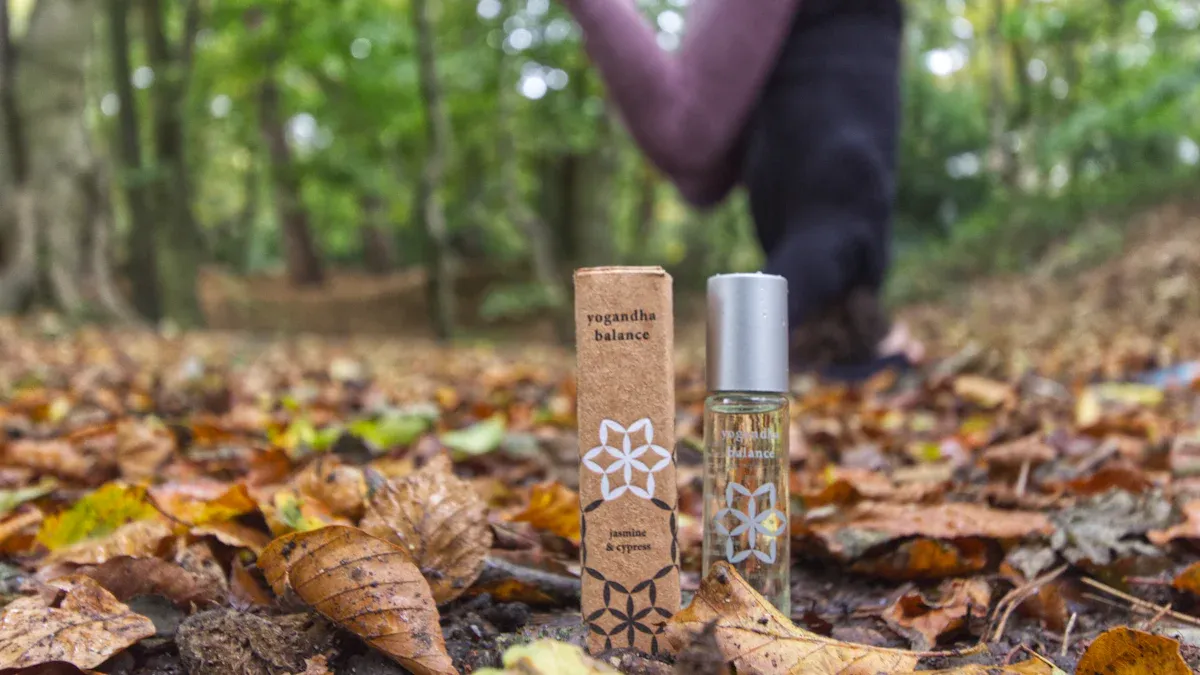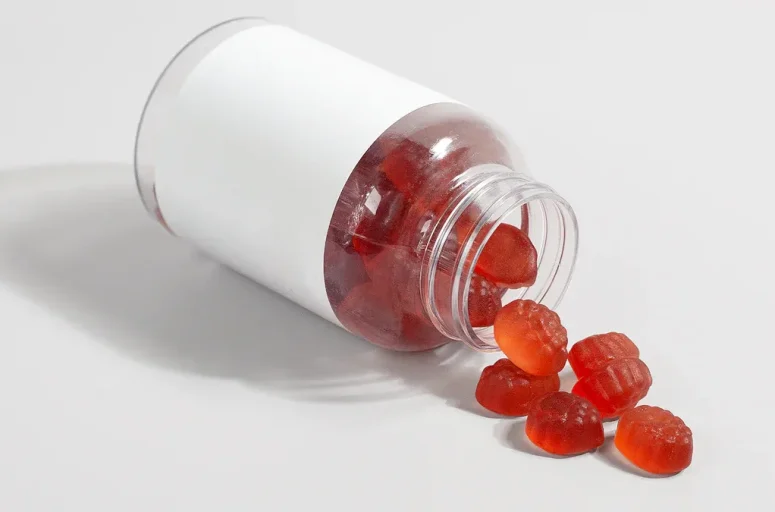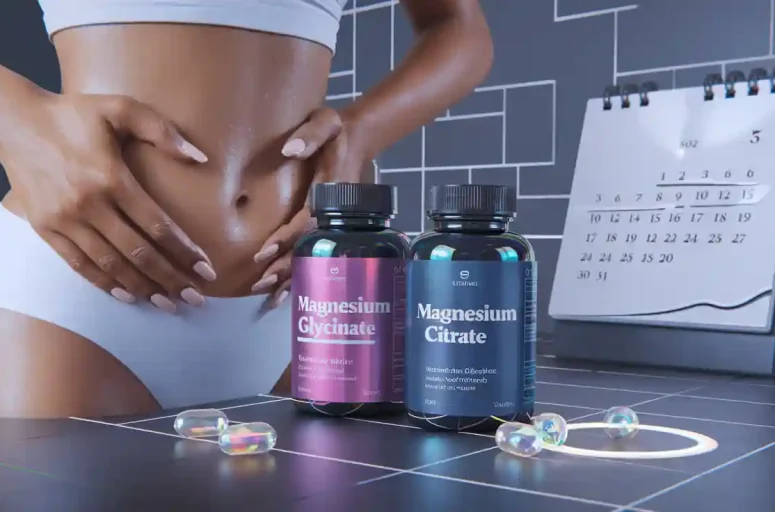
Menopause can feel tough, with problems like hot flashes and tiredness. Many women find these symptoms make daily life harder, which is why Menopause Support is essential. About 6,000 women in the U.S. reach menopause each day, and around 75% of them experience symptoms like hot flashes. Supplements can help manage these changes. For instance, black cohosh may lower hot flashes, providing valuable Menopause Support. Omega-3 supplements can help your heart and improve mood. With the right help, you can feel better and stay balanced during this time.
Key Takeaways
Menopause symptoms like hot flashes and tiredness affect many women. Knowing these symptoms helps you find ways to feel better.
Supplements like black cohosh may lower hot flashes and night sweats. They are a natural option instead of hormone treatments.
Omega-3 fatty acids help your heart and boost your mood. They are a good addition to your menopause care routine.
Magnesium can help you sleep better and feel less tired. It gives you more energy during menopause.
Calcium and vitamin D keep your bones strong. This is important because menopause can weaken bones and cause osteoporosis.
Herbs like ashwagandha can lower stress and boost energy. They make daily life easier during menopause.
Always talk to a doctor before trying new supplements. This ensures they are safe and work well for you.
Eating healthy, exercising often, and sleeping well can help you feel better during menopause.
Understanding Menopause and Its Symptoms
Common Symptoms of Menopause
Menopause causes many changes in your body. Some symptoms are more common than others. Hot flashes affect about 75% of women and can feel uncomfortable. Night sweats often happen with hot flashes, disturbing sleep and causing tiredness. Sleep problems are a big issue, as night sweats can wake you up 85% more often.
Mood swings and irritability are also common, affecting about half of women. Hormonal changes can cause sexual issues like low libido and dryness, which may affect relationships. Over 65% of women report joint and muscle pain, making daily tasks harder.
Here’s a simple look at how symptoms differ by region:
Symptom Type | Prevalence (%) | Population/Region |
|---|---|---|
Vasomotor Symptoms (VMS) | US women undergoing natural menopause | |
Vasomotor Symptoms (VMS) | 36–50% | Northern America |
Vasomotor Symptoms (VMS) | 22–63% | Asia |
Depression | 40.0% | Indian women |
Depression | 36.8% | Brazilian women |
Depression | 25.99% | Chinese women |
Joint and muscular discomfort | 65.43% | General population |
Formication | 20.5% | General population |
The Impact of Menopause Fatigue on Daily Life
Fatigue during menopause is one of the hardest symptoms to handle. It doesn’t just make you tired; it affects your whole day. Poor sleep is a big reason for fatigue, making it hard to focus. You might struggle at work or lose interest in hobbies you enjoy.
Fatigue also drains your physical and mental energy. This can hurt your mood and emotional health. Over time, it lowers your quality of life. Things you once loved doing may now feel like a burden.
Here’s how menopause fatigue can affect your daily life:
Affected Daily Activities | Description of Impact |
|---|---|
Sleep | Poor sleep due to tiredness |
Concentration | Harder to focus on tasks |
Physical and Mental Fatigue | Low energy throughout the day |
Mental State | Mood and emotions are negatively affected |
General Quality of Life | Less satisfaction in daily activities |
Enjoyment of Life | Fun activities feel less enjoyable |
Sexuality | Least affected area |
Interpersonal Communication | Least affected area |
Why Supplements Are a Key Part of Menopause Support
Dealing with menopause symptoms can feel overwhelming, but supplements can help. Black cohosh is one of the most studied options for hot flashes. While it doesn’t work for everyone, many women find it useful. Omega-3 fatty acids are another good choice, helping both heart health and mood.
Not all supplements work the same for everyone. The Menopause Society’s 2023 statement says no single supplement fixes all symptoms. Still, many women feel better by adding them to their routine.
Supplements can be a helpful part of menopause care, especially with a healthy lifestyle. Always talk to your doctor to find what works best for you.
Top Supplements for Menopause Symptom Relief

Black Cohosh
Helps with Hot Flashes and Night Sweats
If hot flashes or night sweats bother you, try black cohosh. This herbal supplement is well-known for easing menopause symptoms. Studies show it can lower how often and how strong these symptoms are.
Here’s what research says:
A review of four studies found three showed black cohosh helped reduce menopause symptoms.
It’s especially good for hot flashes and night sweats, making it a popular natural choice instead of hormone therapy.
Results differ, but many women notice their symptoms improve.
Black cohosh acts like estrogen in the body, helping balance hormones. It’s a good non-hormonal option for managing menopause symptoms.
How Much to Take and Safety Tips
Experts suggest taking 20–40 mg of black cohosh daily. It’s usually sold as capsules or tablets. Follow the label or your doctor’s advice for the right dose.
Black cohosh is mostly safe, but some may feel mild side effects like an upset stomach or headaches. Don’t use it if you have liver problems, as it could make them worse. Always talk to your doctor before starting new supplements, especially if you take medicine or have health issues.
Red Clover
Supports Hormonal Balance
Red clover is another natural option for menopause relief. It has isoflavones, plant compounds that act like estrogen. This makes it helpful for balancing hormones during menopause.
Studies show positive results:
Study Details | Results |
|---|---|
Isoflavones from red clover improve artery health but not blood fats in menopausal women. | J Clin Endocrinol Metab. 1999;84(3):895-898. |
Red clover isoflavones are safe for women with a family history of breast cancer. | Menopause Int. 2008 Mar;14(1):6-12. |
Meta-analysis on red clover extract shows it helps with hot flashes. | Gartoulla P, Han MM. Maturitas. 2014; 79(1):58-64. |
Red clover may also ease hot flashes, though results vary. If you want a natural way to balance hormones, this could be a good choice.
Side Effects and Warnings
Red clover is safe for most, but mild side effects like nausea or headaches can happen. If you’ve had estrogen-sensitive conditions, like breast cancer, ask your doctor before using it. Follow the product’s dosage instructions to stay safe.
Evening Primrose Oil
Helps Mood Swings and Skin Health
Evening primrose oil (EPO) is great for mood swings and skin during menopause. It has gamma-linolenic acid (GLA), a fatty acid that balances hormones and reduces swelling.
Here’s what studies found:
A 2018 study said EPO might lower how bad hot flashes feel.
A 2021 study found no big change in hot flash frequency or severity.
Even with mixed results, many women feel calmer and see better skin after using EPO.
If mood swings or dry skin trouble you, EPO could help.
Safe Use Tips
You can take EPO as capsules or use it on your skin. The usual dose is 500–1,000 mg daily. Short-term use is safe for most, but mild side effects like upset stomach or headaches may occur.
Avoid EPO if you take blood thinners or have bleeding issues. Always check with your doctor before adding it to your routine.
Magnesium
Helps with Sleep and Fighting Fatigue
Magnesium is a key mineral that helps during menopause. If you have trouble sleeping or feel tired all the time, magnesium might help. It calms your nervous system, making it easier to relax and sleep. Magnesium also increases GABA, a brain chemical that helps you sleep better.
Studies show magnesium improves sleep and reduces tiredness. It relaxes muscles, easing pain that can keep you awake. It also helps calm your mind, so falling asleep is easier. Here’s what research says:
Study Focus | Findings |
|---|---|
Magnesium and Sleep | Better sleep, longer rest, and less tiredness. |
Magnesium and Anxiety | Reduces mild anxiety, helping you feel more relaxed. |
Magnesium and Muscle Relaxation | Relieves muscle pain, helping you sleep better. |
Magnesium and Insomnia | Improves sleep problems, as reported by users. |
If menopause makes you feel drained, magnesium can boost your energy and improve your life.
How Much to Take
Magnesium comes in capsules, powders, or gummies. Adults should take 310–420 mg daily, based on age and health. Start with a small amount to see how you feel. Too much magnesium can upset your stomach, so follow the guidelines. Always ask your doctor before starting magnesium, especially if you take medicine or have kidney problems.
Vitamin D and Calcium
Keeps Bones Strong During Menopause
Menopause can weaken your bones because of lower estrogen levels. This raises the risk of osteoporosis, making bones fragile. Vitamin D and calcium are important for keeping bones strong.
Calcium builds bones, while vitamin D helps your body absorb it. Studies show these nutrients improve bone strength in menopausal women. Here’s what one study found:
Aspect | Details |
|---|---|
Objectives | To study how calcium and vitamin D affect bones. |
Results | Women taking calcium and vitamin D had stronger bones than those taking a placebo. |
Conclusion | Calcium and vitamin D improve bone health in menopausal women. |
Tips for Better Absorption
For best results, take calcium with meals since food helps it absorb. Vitamin D works better with healthy fats like nuts or avocado. Sunlight also boosts vitamin D naturally. Try to get 10–15 minutes of sun a few times a week.
Omega-3 Fatty Acids
Good for Heart and Brain Health
Omega-3 fatty acids are very helpful during menopause. They protect your heart by lowering blood pressure and cholesterol, which is important since menopause increases heart risks. Omega-3s also help your brain, improving mood and reducing anxiety or depression.
Here’s how omega-3s help:
Lower swelling, easing joint pain.
Balance hormones, which may reduce hot flashes and night sweats.
Improve mood and reduce anxiety, helping you feel stable.
Protect your heart by lowering cholesterol and blood pressure.
Easy Ways to Add Omega-3s
You can get omega-3s from fish like salmon, sardines, or mackerel. If you don’t like fish, try flaxseeds, chia seeds, or walnuts. Fish oil capsules are another option. Aim for 250–500 mg of EPA and DHA daily for the best results.
Adaptogenic Herbs (e.g., Ashwagandha, Maca)
Benefits for Stress and Energy Levels
Adaptogenic herbs like ashwagandha and maca can help during menopause. These natural plants support your body in handling stress and improving energy, making life easier.
Maca: This root from Peru boosts mood, energy, and libido. It helps balance hormones, which can ease tiredness and mood swings.
Ashwagandha: This herb lowers cortisol, the stress hormone, by up to 28%. It calms stress, improves energy, and balances hormones. It may also reduce hot flashes and mood swings, helping you feel steady and relaxed.
If you feel tired or stressed, these herbs might help you regain energy and feel better.
Safe Usage Guidelines
Using adaptogenic herbs safely is important. Follow these tips:
Dosage: Use the amount on the label or ask your doctor. For maca, 1,500–3,000 mg daily is common. For ashwagandha, 300–600 mg per day works well.
Timing: Take them in the morning or early afternoon to avoid sleep problems.
Side Effects: Most people tolerate them well, but mild issues like upset stomach or headaches can happen.
Consultation: Talk to your doctor before starting, especially if you take medicine or have health concerns.
By following these steps, you can use these herbs safely and enjoy their benefits.
S-equol and Soy-Based Supplements
Benefits for Hot Flashes and Hormonal Balance
S-equol and soy-based supplements are great for menopause symptoms like hot flashes. S-equol comes from soy isoflavones, which act like estrogen in your body. This helps balance hormones during menopause.
Studies show their benefits:
Study Title | Findings |
|---|---|
A pilot study on the effects of S-equol compared to soy isoflavones on menopausal hot flash frequency. | S-equol reduced hot flashes more than soy isoflavones. |
The clinical importance of the metabolite equol-a clue to the effectiveness of soy and its isoflavones. | Equol improves how soy isoflavones balance hormones. |
Natural S-equol decreases bone resorption in postmenopausal, non-equol-producing Japanese women: a pilot randomized, placebo-controlled trial. | S-equol supports bone health in postmenopausal women. |
Effects of natural S-equol supplements on overweight or obesity and metabolic syndrome in the Japanese, based on sex and equol status. | S-equol helps with hormonal balance and overall health. |
New equol supplement for relieving menopausal symptoms: randomized, placebo-controlled trial of Japanese women. | S-equol effectively reduces menopause symptoms. |
These supplements not only ease hot flashes but also improve hormonal health, making them a helpful choice for menopause relief.
Usage Recommendations
To get the best results from S-equol and soy-based supplements, follow these tips:
Dosage: Most products suggest 10–30 mg of S-equol daily. For soy isoflavones, 40–80 mg per day is typical.
Consistency: Take them at the same time every day for better results.
Dietary Sources: If you prefer food options, eat soy-rich foods like tofu, edamame, or soy milk.
Precautions: If you’ve had estrogen-sensitive conditions, talk to your doctor before using these supplements.
Adding S-equol or soy-based supplements to your routine can help manage hot flashes and keep hormones balanced.
How to Choose the Right Supplements for Menopause Support
Things to Think About (e.g., Quality, Dosage, Ingredients)
Picking the best supplements for menopause can feel confusing. There are so many choices, but a few tips can help you decide safely.
Read the label. Look for trusted seals like “USP” or “NSF.” These show the product was tested for safety and quality.
Choose single-ingredient options. Mixed supplements might hide how much of each ingredient is included.
Be aware of side effects. If you feel sick, like having a headache or upset stomach, stop using it and ask a doctor.
Think about your habits. Healthy eating, exercise, and good sleep often help more than supplements alone.
Remember, not all supplements work the same for everyone. For example, valerian may reduce hot flashes, but black cohosh might not work as well for some. Some herbs, like chasteberry, can ease anxiety and hot flashes but may cause side effects. Always weigh the good and bad before choosing.
Why Talking to a Doctor Matters
Before starting any supplement, talk to a healthcare provider. They can help you pick safe and effective options for your needs. For example, if you want magnesium for better sleep, they can check if the dose is right and won’t clash with your medicines.
Doctors can also advise on supplements like melatonin or herbs for your symptoms. They’ll look at your health, conditions, and other treatments to guide you. This advice can save you from wasting money or dealing with side effects.
Some groups, like the North American Menopause Society, warn against certain herbal remedies because they lack proof of benefits. A doctor can help you choose supplements supported by research.
In short, don’t skip this step. Talking to a doctor helps you make smart choices and get the best results for your menopause care.
Lifestyle Tips to Complement Menopause Support
Balanced Diet and Hydration
What you eat and drink affects how you feel in menopause. A healthy diet helps your body handle changes better. Foods with omega-3 fatty acids, like salmon or walnuts, support hormones and health. Whole grains, such as oats and quinoa, can ease symptoms and protect your heart. Dairy products are key for strong bones, giving you calcium and vitamin D, which are very important now.
🥗 Tip: Add fresh fruits, vegetables, and lean proteins to your meals. These foods give your body the nutrients it needs to stay strong and full of energy.
Drinking water is just as important. Staying hydrated fights tiredness and keeps your skin healthy, which can be tricky during menopause. Try to drink at least 8 glasses of water daily. Avoid sugary or caffeinated drinks when possible.
Here’s what studies say about diet and hydration during menopause:
Eating oily fish, legumes, and foods with vitamin B6 and zinc may delay menopause.
Refined carbs like pasta and rice might cause menopause to start earlier.
Vegetarians often experience menopause earlier than non-vegetarians.
A later menopause age means higher estrogen levels, lowering risks of osteoporosis and heart disease.
Regular Exercise and Stress Management
Staying active helps you feel better during menopause. Exercise reduces tiredness, boosts your mood, and strengthens bones. Activities like walking, yoga, or swimming are great choices. They’re easy on your joints and help you stay fit without overdoing it.
Managing stress is just as important. Menopause can bring mood swings, but relaxing activities can help. Try meditation, deep breathing, or hobbies you enjoy. These can lower stress hormones and improve how you feel overall.
🏃♀️ Note: Lifestyle changes, like regular exercise and stress relief, can greatly reduce menopause symptoms.
If you’re unsure where to begin, start small. A 10-minute walk or a few stretches can boost your mood and energy.
Importance of Sleep Hygiene
Sleep can be hard during menopause, especially with night sweats. But good sleep habits can help. Create a calming bedtime routine, like reading or meditating, to relax your mind.
Keep your bedroom cool and dark, around 68–72°F, to stay comfortable. Avoid screens an hour before bed since blue light can mess up your sleep cycle.
Here are some research-backed tips:
Stick to the same sleep schedule every day, even weekends.
Get sunlight during the day to support your natural sleep rhythm.
Avoid heavy meals or alcohol before bed, as they can disturb your sleep.
🌙 Tip: Small changes in bedtime habits can help you sleep better and wake up refreshed.
By focusing on diet, exercise, and sleep, you can improve your menopause care plan and feel more in control of your symptoms.
When to Seek Professional Guidance for Menopause Symptoms
Signs You Should Consult a Doctor
Menopause symptoms can sometimes feel too hard to handle. While many changes are normal, some signs mean you should see a doctor. If your symptoms make daily life difficult, don’t ignore them. For example, extreme tiredness, very bad hot flashes, or mood swings that stop you from doing normal tasks should be discussed with a doctor.
Unusual symptoms also need attention. If you notice big weight changes, dizziness, or more anxiety, these might mean something serious. It’s always better to have these checked out.
Here’s a simple list of when to see a doctor:
Sudden or large weight gain.
Feeling dizzy or off-balance.
Increased anxiety or emotional struggles.
Your health matters. If you’re unsure if your symptoms are normal, it’s always smart to ask a professional.
💡 Tip: Write down your symptoms in a journal. This can help you see patterns and give useful details to your doctor.
Questions to Ask Your Healthcare Provider
Talking to your doctor and asking the right questions can really help. It lets you understand your symptoms and find ways to feel better. Start by sharing how menopause affects your daily life. For example, ask about how strong and long your hot flashes are and if they could affect your heart health.
If you’re thinking about hormone therapy, ask if it’s safe for you based on your health. You can also ask how mood swings might be linked to hormones or lifestyle.
Here are some good questions to ask your doctor:
Do my hot flashes affect my health?
Is hormone therapy a safe choice for me?
How can I handle mood swings better?
Can stress during menopause make my symptoms worse?
What can I do for dryness or unusual bleeding?
These questions can help you and your doctor make a plan that fits you. Don’t be afraid to share any worries you have.
🩺 Note: Your doctor is there to support you. Talking openly helps you get the care you need during menopause.
Going through menopause can be tough, but the right help matters. Supplements like black cohosh, ashwagandha, calcium, and vitamin D can ease symptoms. Black cohosh helps with hot flashes, while calcium and vitamin D keep bones strong. Here’s a simple summary:
Supplement/Botanical | Benefits | Usage Facts |
|---|---|---|
Black Cohosh | Eases hot flashes and other symptoms | |
Ashwagandha | Lowers stress and anxiety | Great for overall wellness |
Calcium | Protects bones from weakening | Women under 51 need 1,000 mg daily |
Vitamin D | Helps your body absorb calcium | Adults need 600 IU daily |
Healthy habits are also important. Eating well, staying active, and managing stress can make you feel better every day. When combined with supplements, these changes create a complete plan for menopause care.
🩺 Tip: Talk to your doctor before trying new supplements. They can help you choose safe and helpful options for your needs.
FAQ
What are the most common menopause symptoms?
You might feel hot flashes, night sweats, or mood changes. Fatigue, sleep troubles, joint pain, and low libido can also happen. Symptoms differ for everyone, so your experience may not be the same.
🩺 Tip: Write down your symptoms to share with your doctor.
Are supplements safe to use during menopause?
Most supplements are safe if used properly. Follow the dosage on the label. Some, like black cohosh or red clover, might cause mild side effects.
Note: Always talk to your doctor before starting supplements, especially if you take medicine or have health issues.
How long do menopause symptoms last?
Symptoms often last 4–5 years, but it varies. Some women have symptoms for a shorter time, while others may have them longer.
🌟 Reminder: Everyone’s experience is different. Find what works best for you.
Can I take multiple supplements at the same time?
Yes, but be careful. Some supplements can interact with each other or with medicines. For example, magnesium and calcium are often taken together, but check with your doctor first.
🛑 Warning: Don’t take too many supplements without asking a professional.
Do I need supplements if I eat a healthy diet?
A good diet usually gives you enough nutrients. But menopause may increase your need for things like calcium or vitamin D. Supplements can help fill any gaps.
🥗 Tip: Focus on eating whole foods first, then add supplements if needed.
How soon will I see results from supplements?
It depends on the supplement and your body. Magnesium might work in days, while herbs like ashwagandha could take weeks. Be patient and stick with it.
⏳ Note: Keep track of changes to see what helps.
Can lifestyle changes reduce menopause symptoms?
Yes! Eating healthy, exercising, and managing stress can help a lot. Exercise improves mood and energy, and a good diet supports your body.
🏃♀️ Tip: Start small. A short walk each day can make a difference.
Should I avoid any supplements during menopause?
Some supplements with strong estrogen-like effects may not be safe for everyone. If you’ve had hormone-sensitive conditions, like breast cancer, avoid these unless your doctor says it’s okay.
🩺 Reminder: Always check with a doctor before trying new supplements.


